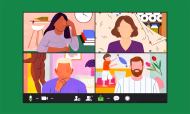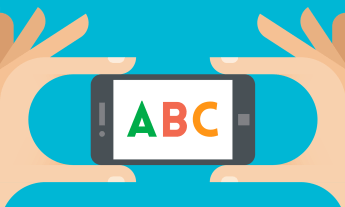
The different ways in which parents handle their kids’ use of technology are creating three distinct types of tech users — and setting the stage for a clash of cultures, says writer Alexandra Samuel.
The era of the digital native is over. If that declaration comes as a relief, you’re most likely either an older tech user who is tired of feeling irrelevant, or a millennial frustrated with being reduced to a headphone-wearing cliché. In 2001, education consultant Mark Prensky coined this term — along with calling the analog-raised generation “digital immigrants” — to alert teachers to the emerging wave of students who’d be arriving at schools with new ways of thinking and absorbing information after growing up with computers, videogames, digital music players, video cams, cell phones and other devices. The term was seized upon by news outlets, academics and businesses and ended up framing people’s understanding of the group born between the mid-1980s and mid-1990s.
But it’s time to retire the idea that tech aptitude and social outlook can be boiled down to whether someone is a digital native or not. Through surveying more than 10,000 North American parents, I’ve found that parents are managing their kids’ use of technology in very different ways, and as a result, three distinct groups of young people — digital orphans, exiles and heirs — will soon be entering colleges and workplaces (each of them accounts for roughly one-third of kids North American kids under 18). By understanding them, we can prepare for coming conflicts and changes. Of course, just as Pensky’s “digital natives” and “digital immigrants” seem overly simplistic today, my types — orphans, exiles, heirs — will no doubt fracture further. But they provide us with a lens to think about how young people are growing up with tech and what impact these formative experiences could have.
Digital orphans have grown up with a great deal of tech access — but very little guidance. They’ve been raised by parents who’ve given them near-unlimited access to technology, yet their mothers and fathers have had few conversations with them about what they’re learning, seeing and experiencing and why it matters. So orphans might end up prioritizing online networks over face-to-face interactions, leading to shaky interpersonal skills. While they’ll probably grow into adults who feel at home on the Internet — they’ll suggest organizing cleaning duties with their roommates via a scheduling app, for example, rather than hashing it out over coffee — they might not think a lot about what kind of home they want it to be. And without reflecting on the consequences of technology, they could end up bringing some of the worst of the Internet into offline society (think: trolling, flaming), instead of actively working to elevate on- and offline life.
Digital exiles are at the opposite extreme — they’ve been raised with minimal technology. Their parents’ goal has been to limit their children’s access in order to delay their entry into the digital world until their teens, if possible — the age when kids are least likely to listen to their parents’ advice. Many exiles will throw themselves into their online lives with a vengeance, and they may struggle with finding a balanced approach to technology. They’ll become intense social networking users, as well the ones likely to get into various forms of online trouble. Other exiles, however, could continue following their parents’ lead and mature into neo-Luddites. This might lead to conflict — while society is willing to smile upon the grandparents who’ve yet to embrace texting, it’s unclear if this tolerance will extend to the young people who explicitly reject technology. Will governments and corporations be willing to offer face-to-face service options for citizens who reject digital channels ideologically? That’s the kind of question these exiles will force us to answer.
Digital heirs have impressive tech skills, thanks largely to their parents and teachers. Their adult mentors have encouraged and directed their tech education, enrolling them in classes and having conversations with them about being a responsible Internet user. By the time they go to college, they know how to build websites, and film and edit video. I believe they’ll bring this tech-savvy “maker” orientation into their consumer, social and political encounters, demanding digital and programmable products and services, like online publications that let you choose what content you’ll see (and where and when you’ll see it); products that go beyond customization into co-creation; and communities that enable citizens to create services by providing data, open online platforms and hack spaces. Due to their higher levels of tech understanding, heirs could face challenges in dealing with their less knowledgeable peers so they’ll need a little charm and flexibility to get along.
Heading for a collision: the worldviews and communication styles of these three types. As our culture continues its transition from an analog society to a digital/analog hybrid, the way people relate to technology will shape their professional opportunities, their relationship to authority, and the way they interact with one another. We’ve already seen the digital-parenting divide give rise to disagreements — between two parents over when they should get their child a cell phone; between schools and parents over how technology should be used in the classroom; and between two families that have warring ideas about which computer games their kids are allowed to play together (or if they’re online at all). Fast forward five or ten years, and these kids will be adults having their own showdowns. But this time it will be about whether to work for the companies that provide full-time jobs or the ones that rely on the newest technology but offer only freelance gigs; and whether to vote for the politicians who stand for the policies they want, or improvise their own workarounds through hacking, piracy and DIY online communities.
The impact of these differences will shape the Internet and the world. Ultimately, how we use the Internet — what we pay attention to, what we ignore — determines the content and experience of the Internet itself (see my TEDxVictoria Talk: Reasons to stop apologizing for your online life). Digital heirs know this, and they can play a role in mentoring the rest of their generation to use and shape the Internet. But it’s also possible that the tensions among the three groups could intensify the polarization that already besets the Internet (and society), as each group’s different technology preferences lead them to retreat to the online communities and platforms that suit only them. By challenging the assumption that every child growing up today is a one-size-fits all digital native, we can make sure each of them can find their own way to relate to technology — whether using it to accomplish basic tasks or to create new technologies and worlds. Being aware of our kids’ differences now is what could help keep them from drifting apart.












